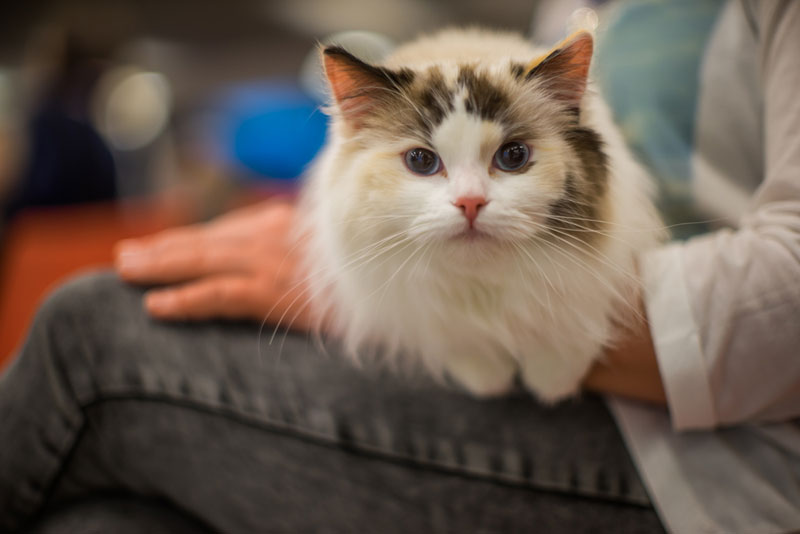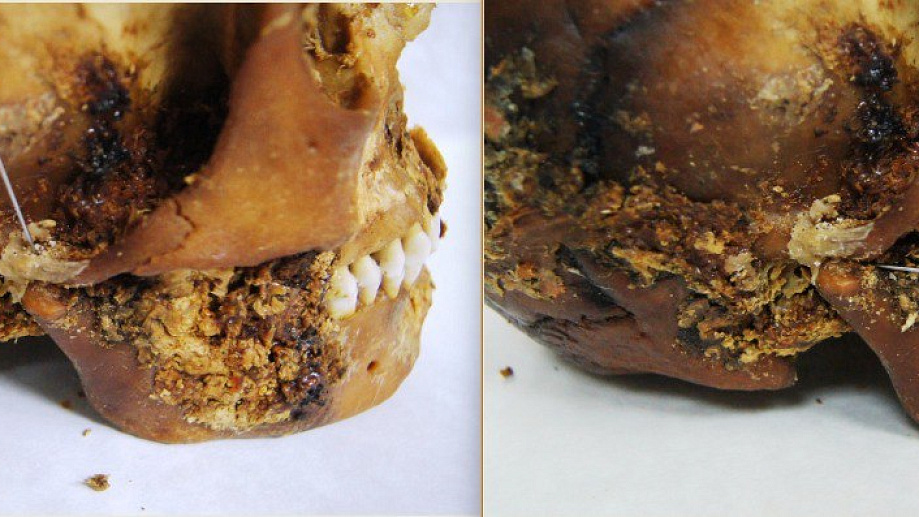Despite 'Mind-Controlling' Parasite, Cat Owners Not at Risk for Psychosis

Get the world’s most fascinating discoveries delivered straight to your inbox.
You are now subscribed
Your newsletter sign-up was successful
Want to add more newsletters?

Delivered Daily
Daily Newsletter
Sign up for the latest discoveries, groundbreaking research and fascinating breakthroughs that impact you and the wider world direct to your inbox.

Once a week
Life's Little Mysteries
Feed your curiosity with an exclusive mystery every week, solved with science and delivered direct to your inbox before it's seen anywhere else.

Once a week
How It Works
Sign up to our free science & technology newsletter for your weekly fix of fascinating articles, quick quizzes, amazing images, and more

Delivered daily
Space.com Newsletter
Breaking space news, the latest updates on rocket launches, skywatching events and more!

Once a month
Watch This Space
Sign up to our monthly entertainment newsletter to keep up with all our coverage of the latest sci-fi and space movies, tv shows, games and books.

Once a week
Night Sky This Week
Discover this week's must-see night sky events, moon phases, and stunning astrophotos. Sign up for our skywatching newsletter and explore the universe with us!
Join the club
Get full access to premium articles, exclusive features and a growing list of member rewards.
Cats are known to carry a parasite linked to symptoms of psychosis in humans, and past studies have suggested that kids who grow up with a feline pet are more likely to have mental health issues. But now a new study casts doubt on that link, finding no such connection between cat ownership and an increased risk of psychosis.
"The message for cat owners is clear: There is no evidence that cats pose a risk to children's mental health," study lead author Francesca Solmi, a researcher in the Division of Psychiatry at University College London (UCL), said in a statement.
Some researchers have hypothesized that owning a cat could increase a person's risk of psychosis, because cats can carry a parasite called Toxoplasma gondii. Infection with this parasite has been linked with the development of schizophrenia and symptoms of psychosis, such as hallucinations. Several earlier studies, including research published in June 2015 in the journal Schizophrenia Research, have also found a link between owning a cat in childhood and developing schizophrenia or other serious mental illnesses.
However, these cat studies were limited because they were small, were not rigorously designed and did not properly account for factors that could affect the link, the UCL researchers said. [7 Strange Facts about the 'Mind-Control' Parasite Toxoplasma Gondii]
In the new study, the researchers analyzed information from nearly 5,000 children who were born in England in 1991 and 1992, and followed them until they were 18 years old. The researchers looked at whether the kids' mothers owned a cat while pregnant, and whether the family owned a cat when the children were 4 and 10 years old.
The researchers also interviewed the children at ages 13 and 18, to assess whether they had experienced psychosis symptoms, including delusions, hallucinations and intrusive thoughts.
Overall, there was no link between cat ownership and symptoms of psychosis at ages 13 and 18.
Get the world’s most fascinating discoveries delivered straight to your inbox.
Initially, the researchers did find a link between cat ownership at ages 4 and 10 and symptoms of psychosis at age 13, but this link went away once the researchers took into account other factors that could influence the results, such as the family's social class, the number of times the family moved before the child was 4 years old and the age of the child's parents.
"Previous studies reporting links between cat ownership and psychosis simply failed to adequately control for other possible explanations" for the link, Solmi said. [10 Facts for Cat Lovers]
Another strength of the new study is that it followed participants forward in time, whereas some previous studies have asked adults to think back to details about their childhood. The latter method is a less reliable way of collecting data, because people may not accurately remember such details, the researchers said.
The new study did not directly measure T. gondii exposure, but the researchers say their results suggest that if the parasite does cause psychiatric problems, their study suggests that cat ownership doesn't significantly increase the risk of exposure to the parasite.
Still, the researchers say that there is good evidence that exposure to this parasite during pregnancy can cause serious birth defects or other health problems. For this reason, pregnant women should follow the public health recommendation to avoid changing cat litter (because the parasite can be present in cat feces), the researchers said.
The study is published online today (Feb. 22) in the journal Psychological Medicine.
Original article on Live Science.

Rachael is a Live Science contributor, and was a former channel editor and senior writer for Live Science between 2010 and 2022. She has a master's degree in journalism from New York University's Science, Health and Environmental Reporting Program. She also holds a B.S. in molecular biology and an M.S. in biology from the University of California, San Diego. Her work has appeared in Scienceline, The Washington Post and Scientific American.
 Live Science Plus
Live Science Plus











